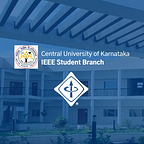Technology: A succor during despair
by Rosemeen Paswan
Abstract
Technology doesn’t guarantee to prevent the onset of a pandemic or an epidemic but if used justifyingly it can surely subside the repercussions. The COVID-19 pandemic has seized the attention of the whole world, grabbing to be the world’s longest sustaining disease till date. With everything happening around, we are not even an inch away from believing that today the greatest risk of global catastrophe is not the massive nuclear weapon but a tiny microscopic organism and it took no while to prove that point. Epidemics and pandemics like SARS, Ebola, H1N1, polio, etc. have always reflected the loopholes of humankind in a great sense, and with every smack, on our faces, we have learned to pave our ways and overcome the biological battle. In the mid of January 2020, India had reported its first COVID-19 case and by March 2020, cases bloomed all over the country and it started to appear on the scale of the worst-hit countries across the world. There was a great sense of panic and chaos over the media and among the people. It’s been a year now, cases have kept tuning in variable fashion but what’s changed is that now we are not completely foreign to the virus-like previously and people have started finding hope amidst the darkness. All thanks to the cutting-edge technology and research that has taken the fastest gear and got into overdrive to come up with effective solutions. The workers at the front line did and have continued doing a great job orchestrating volunteers to face and fight the pandemic. In all of this technology was a great role player latent in the hands of the people on and off-board to the battleground.
Some of the most noticeable fields where technology played a key role are included the following:
Tackling misinformation: In this tech-savvy world where information not even takes a blink to pass from one corner to the other and takes much less than that to spread, it was very easy for the so-called ‘bad influencers’ to spread unethical and fake information regarding the COVID-19 pandemic. Moreover, India being a massive population with like a billion people blindly believing and trying out anything and everything it became a prime job of the government to deal with the net-shark faster and effectively. Companies like Google, Facebook, and various advertising platforms took up this responsibility to aware and make people learn the difference between what’s fake and what’s true. Some renowned personalities chose these platforms to influence people about health and hygiene, raising awareness and reducing the sense of anxiety and panic among the crowd.
“Finding a better response”: With myriads of lives on stake and many already dead, countless eyes were looking up to the medical and research institutes to come up with a solution. It took so many hands to reach where we apparently are, that is we came up with a better response in terms of finding and manufacturing the vaccines. Accurate and precise medical equipment as well as Artificial Intelligence (AI) has helped the researchers suggest components of a vaccine by understanding viral protein structures and helping medical researchers scour tens of heaps of relevant research papers at an unprecedented pace. AI companies like Google DeepMind (introduced AlphaFold), Dearden, Insilico Medicine, etc. helped find ways to study molecular biology using its AI-based 3D models.
Maintaining the distance: COVID-19 is a highly contagious disease having the potential to channel its path even using air as a medium (Air-borne). Since the transmission medium was primarily the human body itself, maintaining social distancing is a must. Hence, contactless deliveries, medication, and services became of prime importance and it paved the way for companies standing on such technologies. Many startups using technologies like AI and robotics started providing services in all ways possible. Autonomous vehicles, drones were used for the delivery of goods, medication, crowd scanning, mass sanitization, thermal imaging, and much more without keeping anyone’s life on a cliff.
Conclusion
From the observations, it is evident to infer that the world is not effectively ready for such biological attacks in the near future as what it’s costing is not only the world economy but human life. The primary healthcare, the R&D would reduce global equity and make the world more just as well as safe and so it should be the priority. But what we know for sure is that we are learning and advancing and so is the technology. There is no doubt that AI and robotics have revolutionized and will continue to advance exponentially according to the various scenarios that humankind might come across. So, let’s cherish the best and be prepared for the worst.
